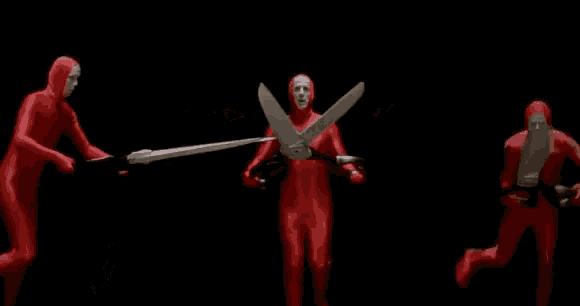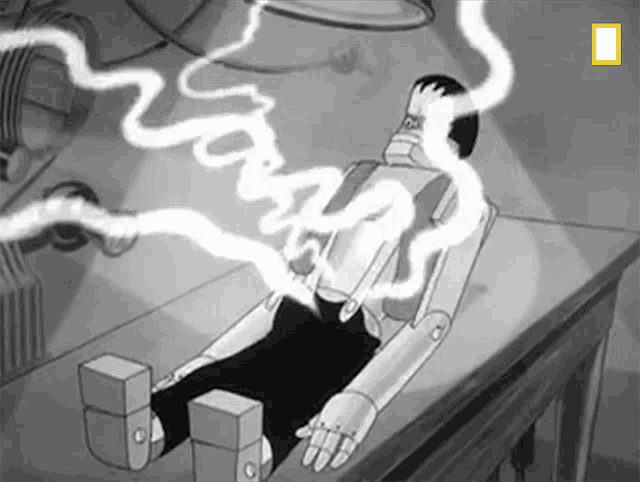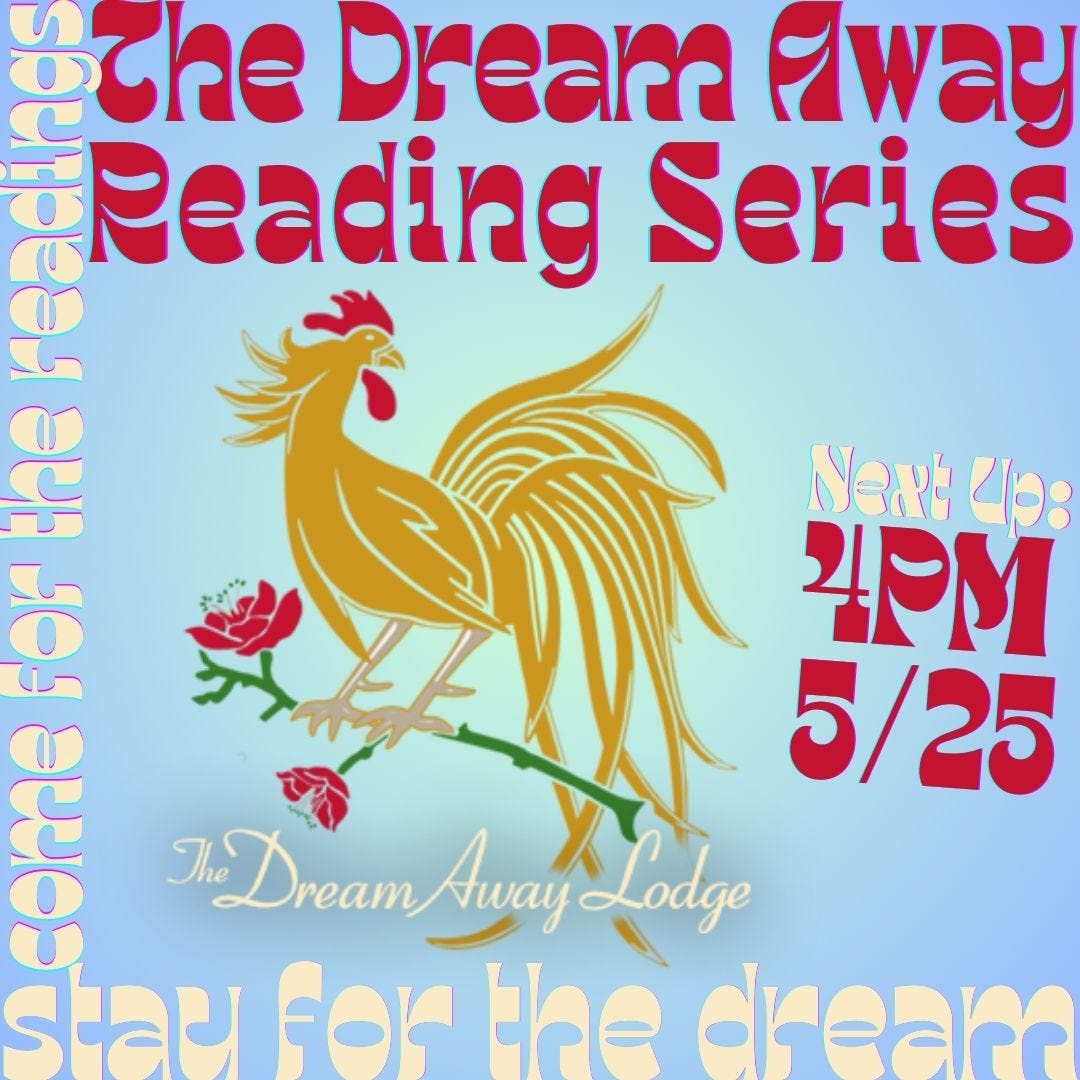Revision (2): Coincidence and Boredom
On getting stuck in the manuscript's "baggy middle" and trying to reignite the spark.
I am barely more than halfway through a second revision of this new manuscript.
It’s not going great!
At the risk of self-indulgence—and in the hope of reaching someone who is also struggling!—I’m going to tell you about it.
I began this revision (re-revision?) with vigor and conviction, buoyed by the collective wisdom of my generous beta readers, ready to make something pretty good into something pretty great [avoid superstition] something with the potential for greatness. I took tons of notes and compiled them by chapter. I wrote a whole new beginning, which extends the already very long (48-year) timeline by another six years. I approached the subsequent chapters as if with oversized, nihilist scissors, lopping off great chunks of prose, killing darlings left and right.
Something interesting happened during this process—the good part of the process, I mean. The revisionist’s frame of mind brought with it a particular and prickly awareness. I had been noticing scenes in the manuscript, relics of its first draft, which echoed one another. (Why do my characters have two, separate, totally unrelated conversations while waiting for an elevator? Why do we see these musicians play essentially the same show, twice?) In that mental context, unconsciously, then consciously, I started noticing more real-life coincidences, very often nothing special, very often very small, so insignificant I felt like a cuckoo nut bringing them up. Did you notice that you said the word yield at the exact moment we passed a yield sign? I asked my husband. How curious that our 4-year-old is obsessed with turtles this week, the very week I happen to be reading a book about people who become obsessed with turtles! How doubly curious that Turtle Diary is itself about coincidences:
Something very slowly, very dimly has been working in my mind and now is clear to me: there are no incidences, there are only coincidences. When a photograph in a newspaper is looked at closely one can see the single half-tone dots it’s made of. There one sees the incidence of a single dot, there another and another. Thousands of them coinciding make the face, the house, the tree, the whole picture. Each picture is a pattern of coincidence unrecognizable in the single dot. Each incidence of anything in life is just a single dot and my face is so close to that dot that I can’t see what it’s part of. I shall never be able to stand back far enough to see the whole picture. I shall die in blind ignorance and rage.
(Side note: do read Turtle Diary, by Russell Hoban—the very same, very strange Russell Hoban who wrote the Frances books, about a bratty but endearing young badger, which you, like I, might have often read in childhood. Turtle Diary, which is not for kids, is a slim 1970s novel about two lonely middle-aged people who become preoccupied by the idea of freeing the sea turtles from the London aquarium. As you can see from the above quotation, it is also about coincidences. I stumbled upon a reference to it in this very good essay by Kevin Brockmeier, who calls it the best book he read in ten years. I maybe wouldn’t go that far—but there was a possibly ten-year period of my life when I’d have told you Brockmeier’s 2007 novel The Brief History of the Dead was my favorite book, so maybe Turtle Diary is a grand-favorite.)
Anyway, here I was, working on this revision, happily noticing coincidences, when, at the exact middle of the manuscript—in the middle of chapter 5 of 10—I lost momentum. 5 is the chapter immediately following what might be thought of as the novel’s first real plot point, in 4: the initial dramatic situation which—despite the fact that the book is structured chronologically backward—will, I hope, invite the reader to keep reading. I won’t bore you with the details, but what happens in 4 is painful, and my intention was for 5 and 6 to act as a kind of semicomedic reprieve, a chance to hang out with the central characters when they’re relatively young and bumbling, ignorant of the tragedy to come. In 7 will come the so-called third-act climax, in which the main characters’ relationship is twisted such that, I hope, all the events of the previous chapters will be cast in a slightly different light. 8 is meant to give more context for that event; the purpose of 9-10 is as a kind of elegiac denouement, the innocence and hope of childhood, etc.
But that’s all theoretical, for now. I haven’t gotten there yet because, as stated above, in the baggy middle, I lost momentum.
It feels awful, after such a promising first few weeks, to have again run out of gas in this journey. To try to hot-wire my process, I picked up The Art of Revision by Peter Ho Davies, and learned quite a lot, and was gruesomely attacked. See this passage Davies quotes, from Benjamin Percy:
When revising, the beginning writer spends hours consulting the thesaurus, replacing a period with a semicolon, cutting adjectives, adding a few descriptive sentences—while the professional writer mercilessly lops off limbs, rips out innards like party streamers, drains away gallons of blood, and then calls down the lightning to bring the body back to life.
Working on chapters 1-4 of this book, I might have dared to identify as that “professional writer” Percy refers to. I felt merciless and powerful as Doctor Frankenstein himself! Since entering the book’s second half, however, I am no better than a persnickety meddler. I’ve been working on chapters 5 and 6 with all the conviction and originality of a colorblind painter-by-numbers. I crave the “innards like party streamers,” the “gallons of blood,” the lightning! Instead I feel stuck and stupid and full of pent-up irritation. Put it on my gravestone, Hoban:
I shall die in blind ignorance and rage.
Perhaps, after an intense period of time spent with the tragedy of chapter 4, the relative froth of 5 and 6 feels like an awkward tonal shift. Perhaps 4 took too much emotional energy and I am too tired now to see 5 and 6 as clearly as I need to. Perhaps I just haven’t been sleeping well (I blame Industry, our current show. The backstabbery! The cocaine!). Perhaps I hate this book! Probably it sucks! Maybe I’m just bored.
Fortunately, Davies has something to say about boredom. Regarding the question of when a piece of writing is done, he acknowledges,
One familiar version of doneness is exhaustion, or boredom. There are writers who will describe this as the end point of revision, by which measure stories are less finished than abandoned. But boredom seems to be a rather dispiriting end point for a creative process.
Recently a writer friend of mine confessed that, after years of writing and rewriting and re-rewriting, she can hardly bear to look at her book anymore, she’s just going to call it done. I’ve been there. Getting to that point with a creative project is like falling out of love. Everything about it feels familiar and irritating. You just can’t stand the sight of it. Davies writes,
We lose faith in the shining idea that got us started when we discover its flaws.
Peter Ho Davies’ theory of revision (re-vision, he points out) consists of re-seeing one’s work: developing a new and inquisitive, essentially readerly relationship with one’s material. He writes, “Much of revision is to see our work through the eyes of the reader. This is why I wrote this. This is what it means to me. This is why I value it.” If that’s so, then “Doneness, in some fundamental sense, returns a story to its writer.” It is why one hates to write, but loves having written, as Dorothy Parker said. In this framework, doneness equals the clarity and apotheosis of those garbled curiosities that got one into this whole mess in the first place.
This weekend, I plan to abandon husband and kids for a brief self-imposed writing retreat at a mostly empty conference center in the woods, 30 minutes from where we live. I’ll be one of the only people there, will have to bring most of my own food, but it’s close enough that the aforementioned husband and children will deliver me dinner Saturday night, the angels. Other than eating with them, what will I do? How to intentionally re-channel that reanimating lightning?? Peter Ho Davies nicely describes the situation, and offers his humble perspective, but he never tells the reader how to fall back in love. How could he? The process must be as personal and specific as the lover herself.
While it’s not something I necessarily claim to know how to do as a writer, I do, sort of, know how to do it as a married person, and a person with several years-long friendships. I slow the fuck down. I try to listen better. I admit my resentments to myself and try to repair them. I search for the reflections of myself in my other, and for their reflections in me.
It occurs to me that, when our subject is people, what might otherwise be thought of as mere coincidences becomes something more sacred, evidence of our shared humanity.
Perhaps this approach will also work with a book.
In Other News
The Dream Away Reading Series is back! With a limited schedule and a new, quieter time slot (no competing with noisy diners / rock musicians!). We’ll be at The Dream Away Lodge in Becket, MA, on Sunday, 5/25, at 4 PM, with three lovely local writers. We’ll do only two more readings at the Lodge this season, on August 3 and October 12, so do mark your calendar, if you’re local. It is always a good time.
Happily, the Brooklyn bookstore Unnameable Books, just blocks from our old apartment, has an outpost in Turners Falls, MA, just 40 minutes from our new house. (Coincidence?) I’ll be in conversation with Serena Burdick at the Turners Falls location on June 20 at 7PM about her forthcoming novel A Promise To Arlette.
I will be teaching my fourth annual free creative writing class this summer at Belding Memorial Library in Ashfield, MA, Wednesdays 6:30 – 8:00, July 30 – August 27. This class has found some real fans, some real regulars, and it has become really special to me, too. In a season when arts funding is being cut, compromised, and retracted, left and right, I’m particularly thankful to the Ashfield Cultural Council for agreeing to fund us again.







